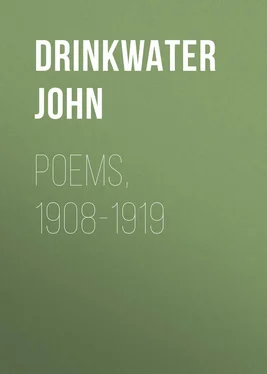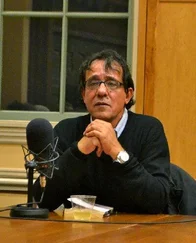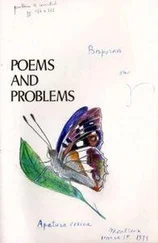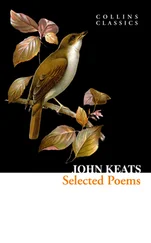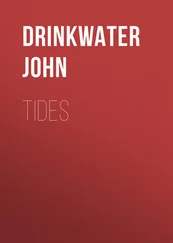John Drinkwater - Poems, 1908-1919
Здесь есть возможность читать онлайн «John Drinkwater - Poems, 1908-1919» — ознакомительный отрывок электронной книги совершенно бесплатно, а после прочтения отрывка купить полную версию. В некоторых случаях можно слушать аудио, скачать через торрент в формате fb2 и присутствует краткое содержание. Жанр: foreign_antique, foreign_prose, на английском языке. Описание произведения, (предисловие) а так же отзывы посетителей доступны на портале библиотеки ЛибКат.
- Название:Poems, 1908-1919
- Автор:
- Жанр:
- Год:неизвестен
- ISBN:нет данных
- Рейтинг книги:4 / 5. Голосов: 1
-
Избранное:Добавить в избранное
- Отзывы:
-
Ваша оценка:
- 80
- 1
- 2
- 3
- 4
- 5
Poems, 1908-1919: краткое содержание, описание и аннотация
Предлагаем к чтению аннотацию, описание, краткое содержание или предисловие (зависит от того, что написал сам автор книги «Poems, 1908-1919»). Если вы не нашли необходимую информацию о книге — напишите в комментариях, мы постараемся отыскать её.
Poems, 1908-1919 — читать онлайн ознакомительный отрывок
Ниже представлен текст книги, разбитый по страницам. Система сохранения места последней прочитанной страницы, позволяет с удобством читать онлайн бесплатно книгу «Poems, 1908-1919», без необходимости каждый раз заново искать на чём Вы остановились. Поставьте закладку, и сможете в любой момент перейти на страницу, на которой закончили чтение.
Интервал:
Закладка:
And, while the city sleeps, in the central poise
Of quiet, lamps are flaming in the night,
Blown to long tongues by winds that moan between
The growing walls, and throwing misty light
On swart men bearing bricks of bright red clay
In laden hods; and ever the thin noise
Of trowels deftly fashioning the clean
Long lines that are the shaping of proud thought.
Ghost-like they move between the day and day,
These men whose labour strictly shall be wrought
Into the captive image of a dream.
Their sinews weary not, the plummet falls
To measured use from steadfast hands apace,
And momently the moist and levelled seam
Knits brick to brick and momently the walls
Bestow the wonder of form on formless space.
And whence all these? The hod and plummet-line,
The trowels tapping, and the lamps that shine
In long, dust-heavy beams from wall to wall,
The mortar and the bricks of bright red clay,
Ladder and corded scaffolding, and all
The gear of common traffic – whence are they?
And whence the men who use them?
When he came,
God upon chaos, crying in the name
Of all adventurous vision that the void
Should yield up man, and man, created, rose
Out of the deep, the marvel of all things made,
Then in immortal wonder was destroyed
All worth of trivial knowledge, and the close
Of man’s most urgent meditation stayed
Even as his first thought – “Whence am I sprung?”
What proud ecstatic mystery was pent
In that first act for man’s astonishment,
From age to unconfessing age, among
His manifold travel. And in all I see
Of common daily usage is renewed
This primal and ecstatic mystery
Of chaos bidden into many-hued
Wonders of form, life in the void create,
And monstrous silence made articulate.
Not the first word of God upon the deep
Nor the first pulse of life along the day
More marvellous than these new walls that sweep
Starward, these lines that discipline the clay,
These lamps swung in the wind that send their light
On swart men climbing ladders in the night.
No trowel-tap but sings anew for men
The rapture of quickening water and continent,
No mortared line but witnesses again
Chaos transfigured into lineament.
THE SOLDIER
The large report of fame I lack,
And shining clasps and crimson scars,
For I have held my bivouac
Alone amid the untroubled stars.
My battle-field has known no dawn
Beclouded by a thousand spears;
I’ve been no mounting tyrant’s pawn
To buy his glory with my tears.
It never seemed a noble thing
Some little leagues of land to gain
From broken men, nor yet to fling
Abroad the thunderbolts of pain.
Yet I have felt the quickening breath
As peril heavy peril kissed —
My weapon was a little faith,
And fear was my antagonist.
Not a brief hour of cannonade,
But many days of bitter strife,
Till God of His great pity laid
Across my brow the leaves of life.
THE FIRES OF GOD
Time gathers to my name;
Along the ways wheredown my feet have passed
I see the years with little triumph crowned,
Exulting not for perils dared, downcast
And weary-eyed and desolate for shame
Of having been unstirred of all the sound
Of the deep music of the men that move
Through the world’s days in suffering and love.
Poor barren years that brooded over-much
On your own burden, pale and stricken years —
Go down to your oblivion, we part
With no reproach or ceremonial tears.
Henceforth my hands are lifted to the touch
Of hands that labour with me, and my heart
Hereafter to the world’s heart shall be set
And its own pain forget.
Time gathers to my name —
Days dead are dark; the days to be, a flame
Of wonder and of promise, and great cries
Of travelling people reach me – I must rise.
Was I not man? Could I not rise alone
Above the shifting of the things that be,
Rise to the crest of all the stars and see
The ways of all the world as from a throne?
Was I not man, with proud imperial will
To cancel all the secrets of high heaven?
Should not my sole unbridled purpose fill
All hidden paths with light when once was riven
God’s veil by my indomitable will?
So dreamt I, little man of little vision,
Great only in unconsecrated pride;
Man’s pity grew from pity to derision,
And still I thought, “Albeit they deride,
Yet is it mine uncharted ways to dare
Unknown to these,
And they shall stumble darkly, unaware
Of solemn mysteries
Whereof the key is mine alone to bear.”
So I forgot my God, and I forgot
The holy sweet communion of men,
And moved in desolate places, where are not
Meek hands held out with patient healing when
The hours are heavy with uncharitable pain;
No company but vain
And arrogant thoughts were with me at my side.
And ever to myself I lied.
Saying “Apart from all men thus I go
To know the things that they may never know.”
Then a great change befell;
Long time I stood
In witless hardihood
With eyes on one sole changeless vision set —
The deep disturbèd fret
Of men who made brief tarrying in hell
On their earth travelling.
It was as though the lives of men should be
See circle-wise, whereof one little span
Through which all passed was blackened with the wing
Of perilous evil, bateless misery.
But all beyond, making the whole complete
O’er which the travelling feet
Of every man
Made way or ever he might come to death,
Was odorous with the breath
Of honey-laden flowers, and alive
With sacrificial ministrations sweet
Of man to man, and swift and holy loves,
And large heroic hopes, whereby should thrive
Man’s spirit as he moves
From dawn of life to the great dawn of death.
It was as though mine eyes were set alone
Upon that woeful passage of despair,
Until I held that life had never known
Dominion but in this most troubled place
Where many a ruined grace
And many a friendless care
Ran to and fro in sorrowful unrest.
Still in my hand I pressed
Hope’s fragile chalice, whence I drew deep draughts
That heartened me that even yet should grow
Out of this dread confusion, as of broken crafts
Driven along ungovernable seas,
Prosperous order, and that I should know
After long vigil all the mysteries
Of human wonder and of human fate.
O fool, O only great
In pride unhallowed, O most blind of heart!
Confusion but more dark confusion bred,
Grief nurtured grief, I cried aloud and said,
“Through trackless ways the soul of man is hurled,
No sign upon the forehead of the skies,
No beacon, and no chart
Are given to him, and the inscrutable world
But mocks his scars and fills his mouth with dust.”
And lies bore lies
And lust bore lust,
And the world was heavy with flowerless rods,
And pride outran
The strength of a man
Who had set himself in the place of gods.
Soon was I then to gather bitter shame
Of spirit; I had been most wildly proud —
Yet in my pride had been
Some little courage, formless as a cloud,
Unpiloted save by a vagrant wind,
But still an earnest of the bonds that tame
The legionary hates, of sacred loves that lean
From the high soul of man towards his kind.
And all my grief
Had been for those I watched go to and fro
In uncompassioned woe
Along that little span my unbelief
Had fashioned in my vision as all life.
Now even this so little virtue waned,
For I became caught up into the strife
That I had pitied, and my soul was stained
At last by that most venomous despair,
Self-pity.
I no longer was aware
Of any will to heal the world’s unrest,
I suffered as it suffered, and I grew
Troubled in all my daily trafficking,
Not with the large heroic trouble known
By proud adventurous men who would atone
With their own passionate pity for the sting
And anguish of a world of peril and snares,
It was the trouble of a soul in thrall
To mean despairs,
Driven about a waste where neither fall
Of words from lips of love, nor consolation
Of grave eyes comforting, nor ministration
Of hand or heart could pierce the deadly wall
Of self – of self, – I was a living shame —
A broken purpose. I had stood apart
With pride rebellious and defiant heart,
And now my pride had perished in the flame.
I cried for succour as a little child
Might supplicate whose days are undefiled, —
For tutored pride and innocence are one.
Интервал:
Закладка:
Похожие книги на «Poems, 1908-1919»
Представляем Вашему вниманию похожие книги на «Poems, 1908-1919» списком для выбора. Мы отобрали схожую по названию и смыслу литературу в надежде предоставить читателям больше вариантов отыскать новые, интересные, ещё непрочитанные произведения.
Обсуждение, отзывы о книге «Poems, 1908-1919» и просто собственные мнения читателей. Оставьте ваши комментарии, напишите, что Вы думаете о произведении, его смысле или главных героях. Укажите что конкретно понравилось, а что нет, и почему Вы так считаете.
